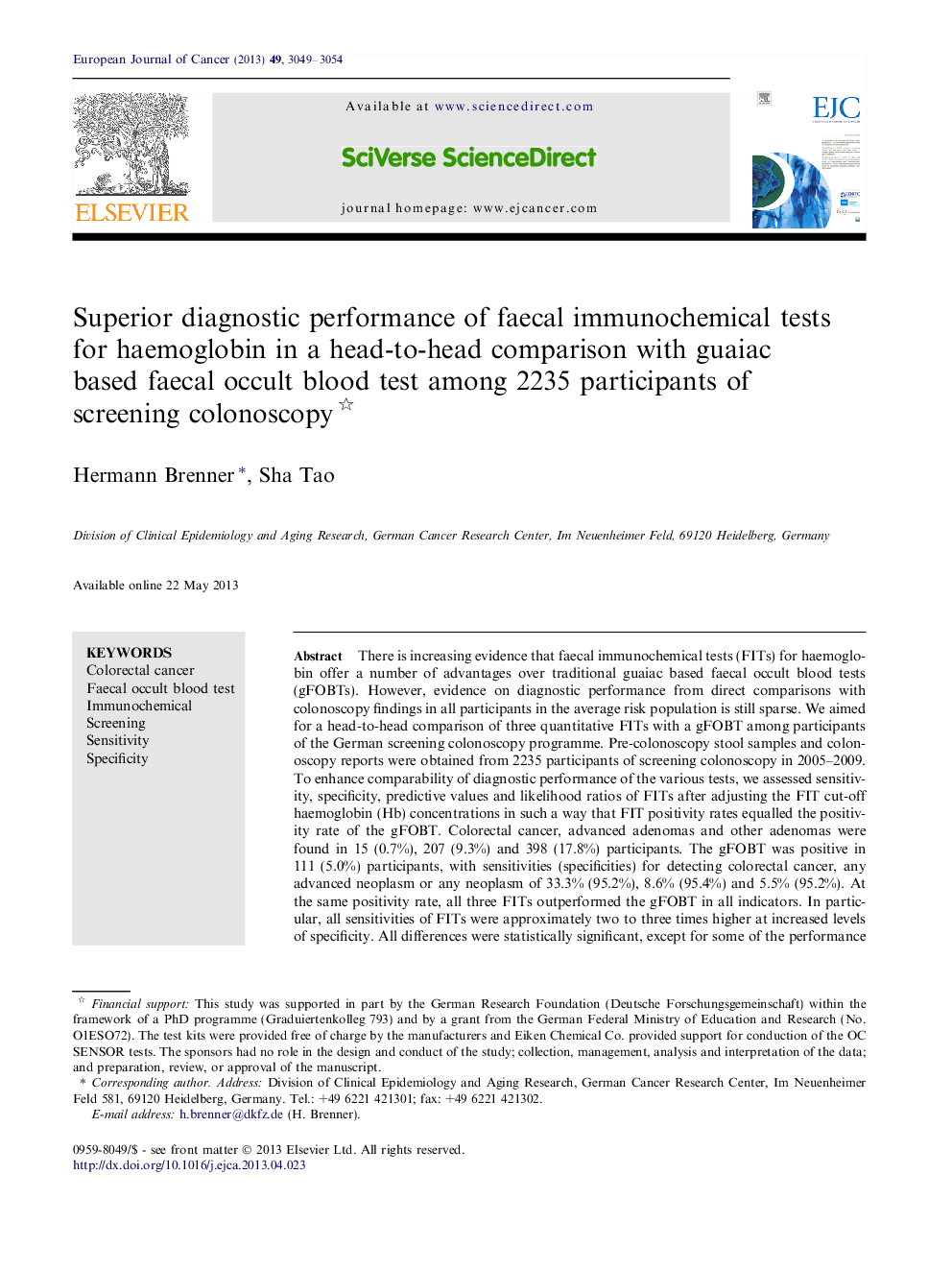| Article ID | Journal | Published Year | Pages | File Type |
|---|---|---|---|---|
| 2122069 | European Journal of Cancer | 2013 | 6 Pages |
There is increasing evidence that faecal immunochemical tests (FITs) for haemoglobin offer a number of advantages over traditional guaiac based faecal occult blood tests (gFOBTs). However, evidence on diagnostic performance from direct comparisons with colonoscopy findings in all participants in the average risk population is still sparse. We aimed for a head-to-head comparison of three quantitative FITs with a gFOBT among participants of the German screening colonoscopy programme. Pre-colonoscopy stool samples and colonoscopy reports were obtained from 2235 participants of screening colonoscopy in 2005–2009. To enhance comparability of diagnostic performance of the various tests, we assessed sensitivity, specificity, predictive values and likelihood ratios of FITs after adjusting the FIT cut-off haemoglobin (Hb) concentrations in such a way that FIT positivity rates equalled the positivity rate of the gFOBT. Colorectal cancer, advanced adenomas and other adenomas were found in 15 (0.7%), 207 (9.3%) and 398 (17.8%) participants. The gFOBT was positive in 111 (5.0%) participants, with sensitivities (specificities) for detecting colorectal cancer, any advanced neoplasm or any neoplasm of 33.3% (95.2%), 8.6% (95.4%) and 5.5% (95.2%). At the same positivity rate, all three FITs outperformed the gFOBT in all indicators. In particular, all sensitivities of FITs were approximately two to three times higher at increased levels of specificity. All differences were statistically significant, except for some of the performance indicators for colorectal cancer. In conclusion, FITs can detect much larger proportions of colorectal neoplasms even if their cut-offs are set to levels that ensure equally low positivity rates as gFOBT.
